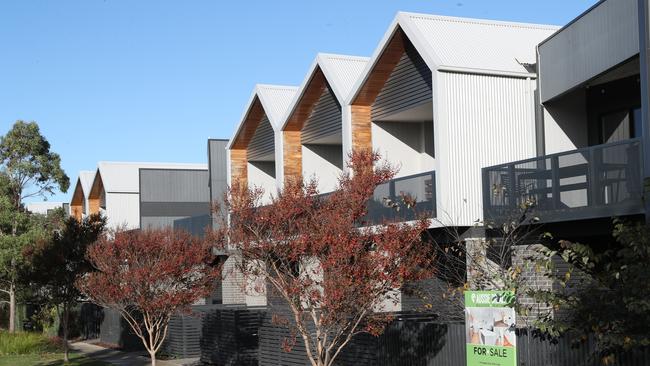
It will be a world that young Australians have never seen before, and many older Australians will have forgotten. For example, banks that are going to be squeezed for deposit funds. Get ready for a deposit rate war.
Long suffering depositors are going to win, but some smaller banks will need to sell out if they lose the loyalty of their depositors.
At the same time large areas of Sydney, Melbourne and perhaps Brisbane will encounter a severe “recession” but not necessarily the nation.
In the “recession” sectors many enterprises relying on discretionary consumer spending will go to the wall including cafes and retailers. But while that is happening the world, and particularly Asian countries, are desperate for our coal, gas, iron ore, copper and rare minerals plus our food.
This demand plus enormous expenditure on decarbonising and flood relief and the fact that many Australians without big mortgages are prosperous means that overall, we may not have a recession. But that won’t be of much help to those that are about to be hit.
Because in recent years overseas money was available at a lower cost than local deposits, banks have been able to treat their depositors like dirt and some have foolishly eroded their depositor loyalty.
Now overseas borrowing costs banks more than Australian deposits so as overseas loans mature, and most banks have staggered their maturities, banks will want to increase their local deposits at a time when savings are falling. And so, initially, bank home lending profits will look very healthy because mortgage interest rates will have risen, while overall deposit rates will take time to properly respond to the new environment
But as banks fight for deposits, the profit bonanza of recent years – home lending – will be a tight business. New loans will be scarce because it will take time for real estate values to fall sufficiently to enable volume lending at higher interest rates.
Hopefully, if inflation is controlled rates will come down. In that interim period of possibly 12 to 18 months there will be much churning of business as banks and other lenders chase each other‘s home loans to maintain volume.
When it comes to the recession in our capital cities an obvious mitigating factor will be the shortage of labour. But in many areas that will erode. For example, in supermarkets people with existing jobs are lining up to be employed stacking shelves between 6.00pm and 10.00pm when they finish their main job. They are prepared to work two jobs or 14 or 15 hours a day simply to keep pace with the mortgage.
For those that borrowed at around two per cent either with flexible rates or short-term fixed rates that become flexible the burden of interest is decimating their finances. But mortgage payments will rank above everything else for most families.
Indeed, economist Callam Pickering sums up the situation this way: “The household sector has been the engine behind Australia’s remarkable economic recovery. Household spending rose by 1.1 per cent in the September quarter, with growth concentrated in spending on hotels, cafes & restaurants, transport and vehicle purchases.”
“But households have been relying on their savings, accrued during the pandemic, to maintain their spending in recent quarters. The household sector has been hit from all angles, with high inflation, falling asset prices and rising mortgage repayments all weighing heavily on household budgets.”
“With inflation-adjusted wages at an 11-year low, many households will have to make tough decisions around their spending habits. The type of spending that we’ve seen during the pandemic recovery may no longer be viable.”
Whereas most banks are relatively optimistic about the total national economy our biggest home lender the Commonwealth Bank has been warning the Reserve Bank of the severity looming ahead for the vast numbers of people that have borrowed in the two years that followed the RBA’s assurance that interest rates were unlikely to rise until 2024.
It is important for enterprises to understand that even though Australia might not have a recession they will experience a severe downturn if they are depending on discretionary spending from those with big mortgages.
In the US, short two-year treasury notes are yielding almost one per cent above 10-year bonds indicating that a US recession is highly likely.
The higher short-term bond rates indicate higher Federal Reserve rates are looming which will crunch the US economy. But when inflation is beaten rates will fall which is why longer-term rates how much lower.
European markets are also forecasting a recession so we are looking at a bumpy global time.
Australia’s resource and food industries will make the country a more attractive place than most in this era but that won’t alleviate the pain of those in the mortgage squeeze.







The Australian sharemarket is only just coming to grips with the new world that is emerging in banking and Australian business as the rules change dramatically. And US markets are predicting an equally dramatic change for the US.